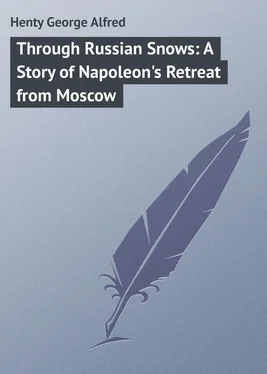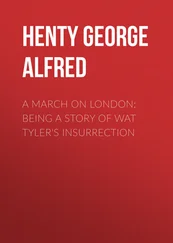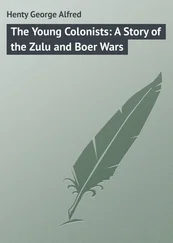George Henty - Through Russian Snows - A Story of Napoleon's Retreat from Moscow
Здесь есть возможность читать онлайн «George Henty - Through Russian Snows - A Story of Napoleon's Retreat from Moscow» — ознакомительный отрывок электронной книги совершенно бесплатно, а после прочтения отрывка купить полную версию. В некоторых случаях можно слушать аудио, скачать через торрент в формате fb2 и присутствует краткое содержание. Издательство: Иностранный паблик, Жанр: foreign_prose, foreign_children, на английском языке. Описание произведения, (предисловие) а так же отзывы посетителей доступны на портале библиотеки ЛибКат.
- Название:Through Russian Snows: A Story of Napoleon's Retreat from Moscow
- Автор:
- Издательство:Иностранный паблик
- Жанр:
- Год:неизвестен
- ISBN:нет данных
- Рейтинг книги:5 / 5. Голосов: 1
-
Избранное:Добавить в избранное
- Отзывы:
-
Ваша оценка:
- 100
- 1
- 2
- 3
- 4
- 5
Through Russian Snows: A Story of Napoleon's Retreat from Moscow: краткое содержание, описание и аннотация
Предлагаем к чтению аннотацию, описание, краткое содержание или предисловие (зависит от того, что написал сам автор книги «Through Russian Snows: A Story of Napoleon's Retreat from Moscow»). Если вы не нашли необходимую информацию о книге — напишите в комментариях, мы постараемся отыскать её.
Through Russian Snows: A Story of Napoleon's Retreat from Moscow — читать онлайн ознакомительный отрывок
Ниже представлен текст книги, разбитый по страницам. Система сохранения места последней прочитанной страницы, позволяет с удобством читать онлайн бесплатно книгу «Through Russian Snows: A Story of Napoleon's Retreat from Moscow», без необходимости каждый раз заново искать на чём Вы остановились. Поставьте закладку, и сможете в любой момент перейти на страницу, на которой закончили чтение.
Интервал:
Закладка:
"I firmly believe that it was so."
"It is not a question of belief. You might believe that he was going to throw you up to the moon. You struggled, I suppose – you would scarcely submit to be carried like a baby – I imagine that is about the long and short of it. But even if he had intended to throw you on the fire, which certainly seems to be merely a matter of your imagination, you can hardly pretend that had he carried out this intention that it would have been murder. Surely with a score of your friends standing by, you would have been hauled out immediately, none the worse except for a few singes and a burn or two. This was not a burning fiery furnace, Mr. Faulkner, but merely a bit of a bonfire from a few sticks that had been set on fire in order to throw a little light on the proceedings."
"I might have been very seriously burnt."
"Well, even supposing that you had been, that is not a question of murder. I presume that you framed this indictment you have charged the prisoner, not with an intention of committing grievous damage upon you, but with murder, and if you now admit that, under the circumstances, death could hardly have resulted by any possibility from this imaginary intention of throwing you on the fire being carried out, it is clear that the charge of murder must drop through. I have no further questions to ask you, though I may have some remarks to make after having heard your witnesses."
CHAPTER III
IN A FRESH SCRAPE
The first witness called by Mr. Faulkner was Captain Downes.
"Will you tell us what you know about this affair?" the chairman said.
"After having captured the smuggler, I took six men and went up to see if I could be of any assistance to Mr. Moorsby, and also to hear whether he had been as successful with his capture as I had. I found that everything was over, and that a fire had been lighted. I was talking to Mr. Moorsby when my attention was excited by loud words between Mr. Faulkner and Mr. Wyatt, with whom I am acquainted. Mr. Faulkner struck him in the face, and there was a scuffle, the prisoner lifting the magistrate, although a much heavier man, completely off his feet. In the course of the scuffle they approached the fire, and being afraid that they might fall into it, I ran up with Mr. Moorsby and some of the men, and pulled them away."
"Did it seem to you, Captain Downes, that the prisoner was carrying Mr. Faulkner straight to the fire?"
"He was certainly going straight in that direction, but whether intentionally or not I am unable to say."
"Do you think that if you and your men had not interfered they would have fallen into the fire?"
"I think they would certainly have done so."
"Do you think that the prisoner intended to throw Mr. Faulkner into the fire?"
"That I cannot say."
"Have you any questions to ask the witness, Mr. Faulkner?" the chairman asked.
"You do not think it likely, I suppose, that the prisoner could have intended himself to tumble into the fire?"
"I should think it very unlikely."
Mr. Faulkner sat down, and Mr. Probert rose.
"You think it very unlikely, Captain Downes, that Mr. Wyatt would deliberately have walked into the fire, and I quite share your opinion; but it has not yet been proved that he was deliberately going towards the fire at all. You say he lifted Mr. Faulkner in his arms. Now it seems to me that, having done so, he would not be able to see at all which way he was going, as Mr. Wyatt's eyes would both be on a level with Mr. Faulkner's chest; moreover, it must be evident that, judging from his present appearance, he could scarcely have seen anything at all, after receiving such a blow. Does it not strike you as being still more likely that, partially blinded as he was, and being unwilling to strike the magistrate in return, however much the latter had forfeited all claim to respect, he closed with him, and in the heat of passion lifted him up and carried him along at random?"
"I think that very likely," the lieutenant replied.
"Had you yourself been struck as the prisoner was struck, Captain Downes, what course do you think it would have been proper for you to pursue?"
"I don't know what would have been proper, but I know what I should have done. Magistrate or no magistrate, I should have knocked my assailant down, or at any rate I should have tried to."
"As a naval man, Captain Downes, you have had some experience of the conduct gentlemen generally observe to their prisoners. I presume that it is not their custom to strike them, even if they did make a somewhat free use of their tongues?"
"Certainly not," Captain Downes said emphatically.
"Would you go so far as to say that you would consider it to be a disgraceful and cowardly act?"
"I should so consider it."
There was again a murmur of applause in court, which was instantly arrested when Mr. Probert held up his hand deprecatingly. "Thank you, Captain Downes," he went on. "Now we come to the question of the quarrel that gave rise to this affair. Mr. Faulkner has not thought fit to ask you any questions about it. Were you standing close enough to hear what passed?"
"I was standing close by, and both Mr. Faulkner and the prisoner spoke loudly enough to be heard at such a distance."
"The magistrate first began the conversation?"
"He did."
"He used very strong language, did he not?"
"Very strong."
"Did you think that he was justified in using such strong language?"
"Certainly not; I thought that it was most improper."
"And do you think that a gentleman accosted so improperly is to be greatly blamed if he uses strong language in return?"
"It would no doubt have been better if he had held his tongue at the time, and have called him to account afterwards."
"Still the provocation was very strong, Captain Downes, and you could not altogether blame him."
"I did not blame him at all," the witness said curtly.
"And what did you think when Mr. Faulkner suddenly struck his prisoner in the face?"
"Am I to answer that question?" the witness asked the bench.
"I do not think that it is an improper question," the chairman replied.
"Very well, sir. Then, if I must say it, I thought it was one of the most blackguardly and cowardly things I ever saw done."
"Thank you, Captain Downes. I do not think it necessary to ask you any further questions."
"Have you any more witnesses to call, Mr. Faulkner?" the chairman asked coldly.
Mr. Faulkner's face was white with rage. "I have a dozen other witnesses," he said hoarsely, "but I have no doubt they will all follow the lead their officer has set them. I shall therefore call no more."
"I do not think, your worships," Mr. Probert said, rising, "that it is necessary for me to address you. I would only submit to you that there is not a shadow of evidence to support the charge of an attempt to murder. As to the abusive language, I cannot say that my client's words were a retort courteous, but they were only a retort natural, and were simply the consequence of the extraordinary conduct of Mr. Faulkner, acting at the time in his capacity of magistrate. As to the charge of threatening language, it is altogether absurd. My client simply asserted what is true by common report – that Mr. Faulkner had been threatened, and that it was possible that those threats might some day or other be carried into effect. I have only, therefore, to leave the case in the hands of your worships."
The two magistrates put their heads together for a short time. Then the chairman said: "The bench is of opinion that the charge of attempted murder is altogether without foundation, and that of abusive language and the use of threats should never have been brought, seeing that they were the result of what we cannot but consider the very ill-judged and improper conduct of the plaintiff. You are therefore discharged, Mr. Wyatt; but my colleague and myself cannot but again express a hope that this and the preceding charge may prove a lesson to you to avoid taking part, even as a spectator, in such breeches of the law as those which led to this very regrettable occurrence."
Читать дальшеИнтервал:
Закладка:
Похожие книги на «Through Russian Snows: A Story of Napoleon's Retreat from Moscow»
Представляем Вашему вниманию похожие книги на «Through Russian Snows: A Story of Napoleon's Retreat from Moscow» списком для выбора. Мы отобрали схожую по названию и смыслу литературу в надежде предоставить читателям больше вариантов отыскать новые, интересные, ещё непрочитанные произведения.
Обсуждение, отзывы о книге «Through Russian Snows: A Story of Napoleon's Retreat from Moscow» и просто собственные мнения читателей. Оставьте ваши комментарии, напишите, что Вы думаете о произведении, его смысле или главных героях. Укажите что конкретно понравилось, а что нет, и почему Вы так считаете.












